A Collective of Disabled UBC Community Members
A common refrain from our new members is that they aren’t sure they belong; they worry they “aren’t disabled enough”. We are here to assure that unlike at other times in your life, there is no medical exam, paperwork, or legal definition required to join this group.
We are a group, a collective, a community of disabled folks associated with both UBC campuses. We support each other, share stories and resources, and take positive action to improve the lives of past, current and future UBC colleagues. The Disability Affinity Group (DAG) is comprised of members of the UBC community spanning both campuses; faculty, staff, postdoctoral fellows, undergraduate students, graduate students, alumni, past employees, consultants and others with a connection to either campus.
We have helped advocate for the formation of the UBC Centre for Workplace Accessibility, the UBC hybrid work policy and are currently working to re-work the proposed Workplace Accommodations Draft Policy from the lens of disabled employees and are actively working to start a UBC Disability Task Force.
Read about the origins of the Disability Affinity Group here: Disability Affinity Group Ready to Launch (October, 2020)
If you would like to join the Disability Affinity Group – to connect with other disabled UBC people in remote, informal “community of care” meetings, or to help us advocate for change at UBC, please email disability.affinity@ubc.ca and say hi!
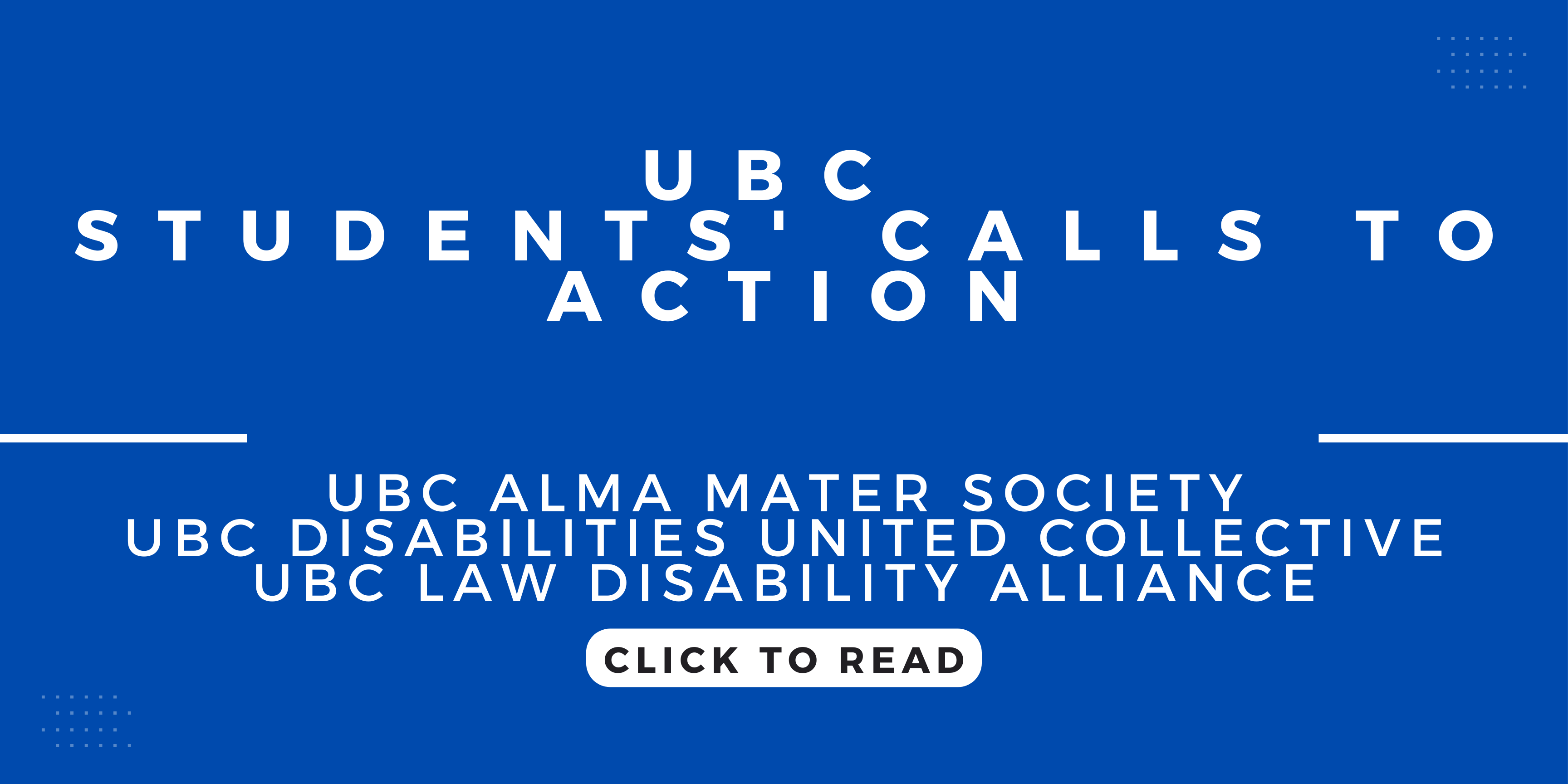
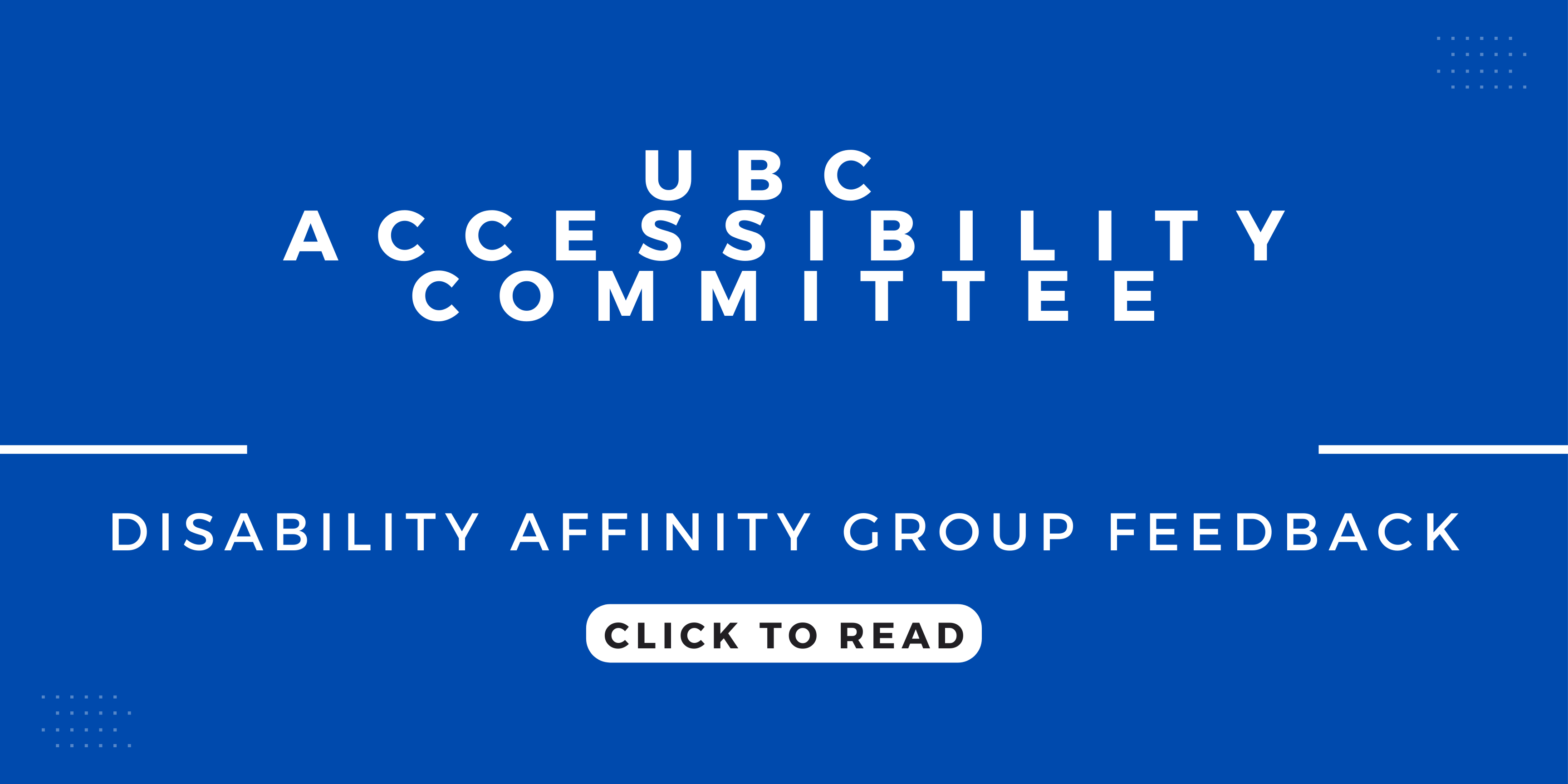
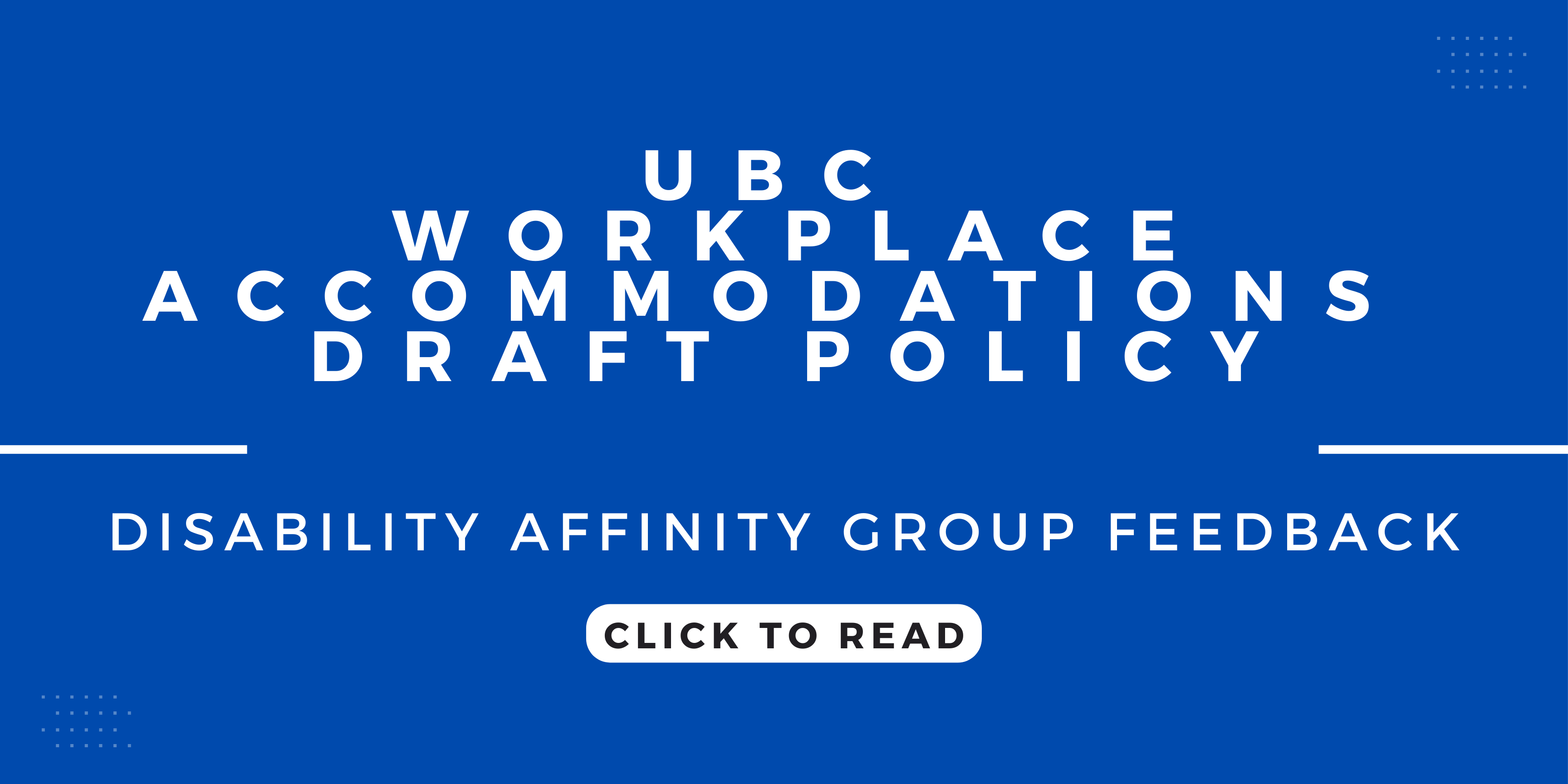
DAG Executive Team
Dr. Jennifer Gagnon, President
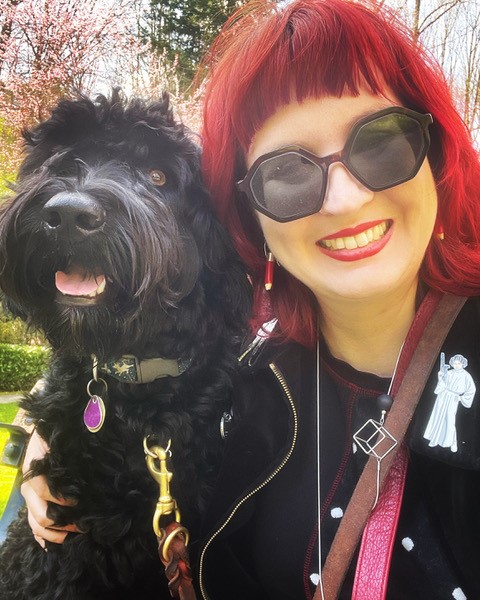
Dr. Jennifer M. Gagnon (she/her/hers) (PhD, Political Science, University of Minnesota, BA, University of British Columbia) is a Lecturer in the School of Journalism, Writing, and Media at the University of British Columbia (UBC). She has taught in a wide range of programs including Political Science, Classics, Academic Writing, International Education and more. Her research is interdisciplinary and embraces topics in Disability Studies, political theory, classics, qualitative methods, Universal Design for Learning (UDL), feminism, and gender. Her main area of research is in Disability Studies, especially as concerns gender, inclusion and exclusion, violence, and visible and invisible disabilities. As an advocate, she is involved in activism and workshop facilitation on Disability Justice, accessibility, a culture of consent, and LGBTQ2SIA+ inclusion both on and off campus. She is the creator and President of UBC’s Disability Affinity Group which works towards the goals of community care and Disability Justice. She is a recipient of the 2021 Killam Teaching Prize at UBC which recognizes excellence in teaching innovation. Dr. Gagnon identifies as a bisexual settler and disabled woman, and strives to bring her whole self to her teaching and research.
Dr. Ziggy Stardust (he/they) (Wag the Dog Service Dogs) is an in-training service dog who works side by side with Dr. Jennifer Gagnon as her supportive collaborator. Ziggy is a two year old Portuguese Water Dog, and is very excited to start his journey working at UBC.
Dr. Dana Solomon, Vice President
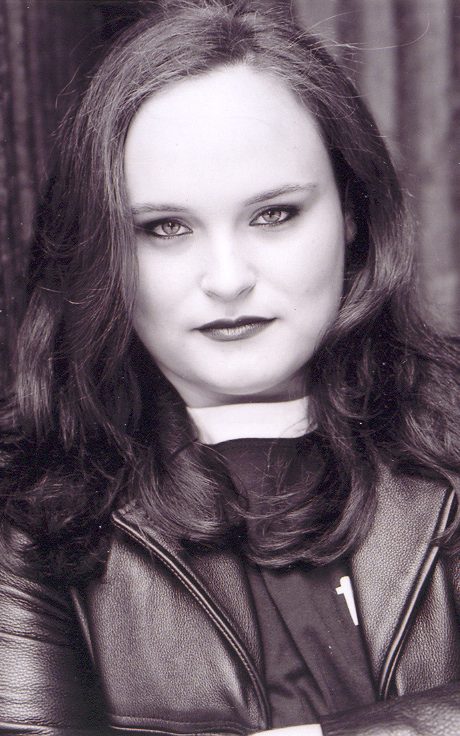
Dr. Dana Solomon is a researcher, artist, entrepreneur, and advocate for human rights and equity. She has both an MA and PhD in Interdisciplinary Studies and fifteen years of experience developing innovative and effective strategies for reducing systemic inequities facing multiple communities in diverse settings. Her research includes the impact of weight bias within the medical profession, ideologies of genocide and international conflict, and Ideologically Challenging Entertainment. She has almost fifty creative and academic publications, including her book, Ideological Battlegrounds: Entertainment to Disarm Divisive Propaganda.
Dr. Solomon serves as the Vice President of the Disability Affinity Group at the University of British Columbia and owns and operates her own business, D-Editions and Chalmers Solomon Solutions.
Corin Parsons, Director of Student Relations
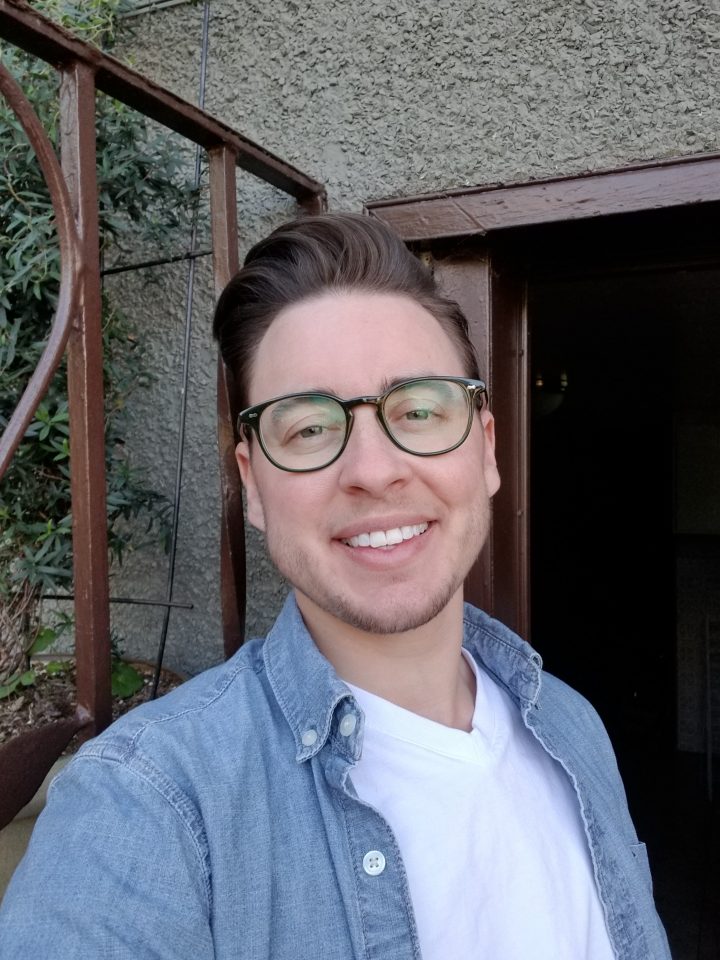
Corin Parsons (he/him) is a crip, queer, and trans PhD candidate in geography at the University of British Columbia. His dissertation research is on cats, gender, and domestic space. His experiences as a disabled student and scholar have led him to seek out opportunities to promote crip perspectives, address academic ableism, and support the needs of disabled members of the university community. He is also engaged in advocacy work in the wider disability community and has a particular interest in alternative spaces of disabled knowledge production, such as Disability Twitter. He enjoys knitting, gardening, wheelchair racing and tennis, and spending time with his two cats.
Kathryn Douglas-Campbell, Director of Communications
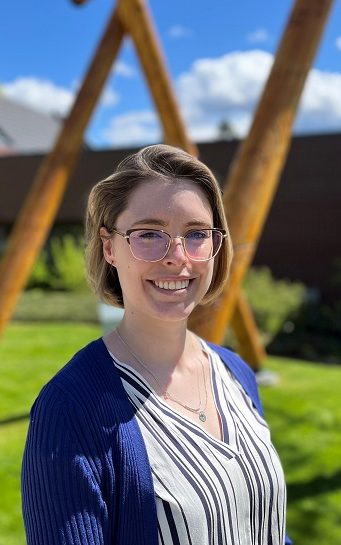
Kathryn Douglas-Campbell (she/her) is a chronically ill/disabled woman originally from Treaty 7 territory/Calgary, Alberta who currently resides in the beautiful syilx/Okanagan Nation territory/Vernon, BC. She holds a BSc in General Biology with a focus on cell physiology, and a MSc, Neuroscience both from UBC. She joined the Faculty of Health and Social Development at the University of British Columbia in 2019, initially providing administrative support to graduate programs until 2022 when she became the Projects and Administrative Coordinator for the Faculty. She is also a Registered Veterinary Technologist (RVT) and works at a veterinary clinic one evening per week.
Kathryn joined the Disability Affinity Group in 2020, and took on the role of Director of Communications in the Spring of 2022. She is passionate about advocating for accessibility and is keen to make positive and lasting change that benefits everyone. She is mindful of the privilege she has in this work as a white, cis woman and is determined to use that privilege to centre racialized, Indigenous, Black, and 2SLGBTQIA+ disabled folks.
The University of British Columbia – Vancouver Campus is located on the traditional, ancestral, unceded and stolen territory of the xwməθkwəy̓əm (Musqueam), səlilwətaɬ (Tsleil-Waututh Nation), and Sḵwx̱wú7mesh Úxwumixw (Squamish Nation) people. The University of British Columbia – Okanagan Campus sits on the traditional, ancestral, unceded and stolen territory of the Syilx (Okanagan) peoples.
The Disability Affinity Group reflects on the connection between disability and the negative impact colonialism has on the land, water and air that surrounds us. First Nations, Inuit and Metis people are more likely to experience chronic illness and disability than any other racialized group on Turtle Island; according to the British Columbia Aboriginal Network on Disability Society, up to 30% of Indigenous people in Canada live with a disability.

